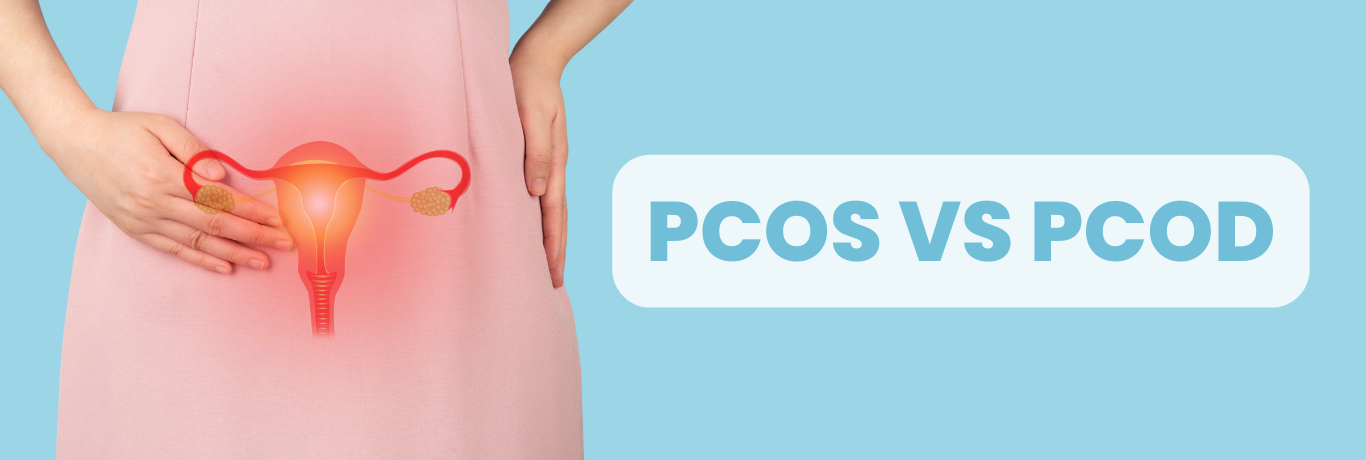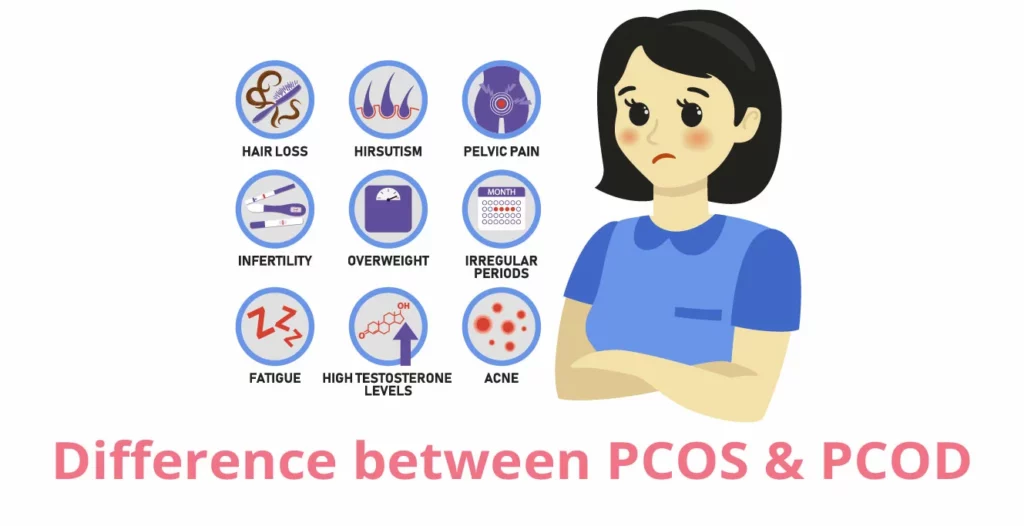


Polycystic ovary disease (PCOD) and polycystic ovary syndrome (PCOS) are two common hormonal disorders that affect women of reproductive age. Despite their similar names, these conditions are not the same and have distinct differences in terms of their causes, symptoms, and treatment. In this article, we’ll delve deeper into the difference between PCOD and PCOS, their respective symptoms, causes, and treatment options.
PCOD and PCOS are often used interchangeably, but they are two different conditions that affect the ovaries. However, PCOD is a condition where multiple small cysts are present in the ovaries, while PCOS is a hormonal disorder where the ovaries produce more androgens (male hormones) than usual. This leads to a hormonal imbalance that can cause a variety of symptoms.
The symptoms of PCOD and PCOS can be similar, but they can also differ depending on the individual. Here are some common symptoms of each condition:
Symptoms of PCOD:

Symptoms of PCOS:
The causes are not fully understood, but there are several factors that are believed to contribute to these conditions. Here are some potential causes of each condition:
Causes of PCOD:
Causes of PCOS:
Diagnosing PCOD and PCOS can involve a combination of medical history, physical examination, and laboratory tests. Here are some common diagnostic tests for each condition:
Diagnostic tests for PCOD:
Diagnostic tests for PCOS:
Treatment for PCOD and PCOS can vary depending on the severity of symptoms and the individual’s health status. Here are some common treatment options for each condition:
In addition to medical treatments, lifestyle changes can also help manage the symptoms of PCOD and PCOS. Here are some tips:
Tips for managing PCOD:
Tips for managing PCOS:
PCOD is a condition characterized by small cysts in the ovaries and hormonal imbalances, while PCOS is a hormonal disorder associated with insulin resistance. Both conditions share similar symptoms such as irregular menstrual cycles and weight gain, but differ in the hormones affected and associated risks. Treatment options include lifestyle changes, hormonal medications, and surgery if necessary. Early diagnosis and treatment are important for managing symptoms and reducing the risk of complications.
Read Also:
Migraine Treatment in Ayurveda: A Comprehensive Guide
How To Use Essential Oils For Sinus Relief?
Can Spicy Food Cause Acne? Debunking the Myths and Examining the Science
Jeera Water for Weight Loss: A Natural and Effective Way to Shed Pounds